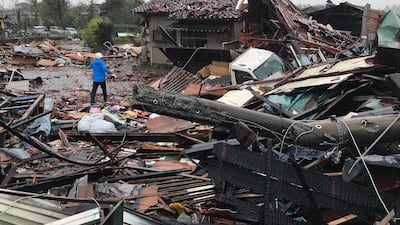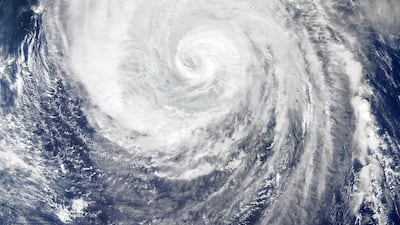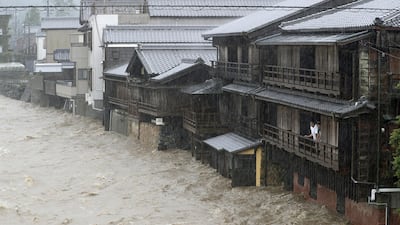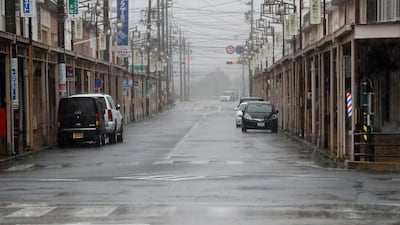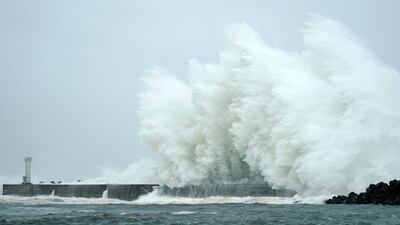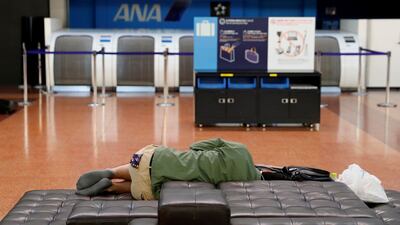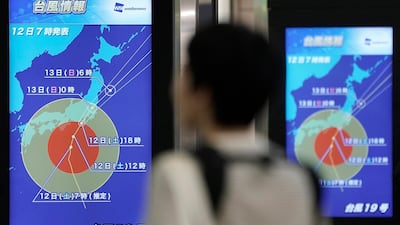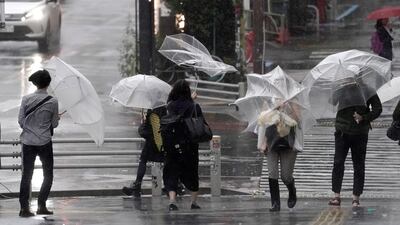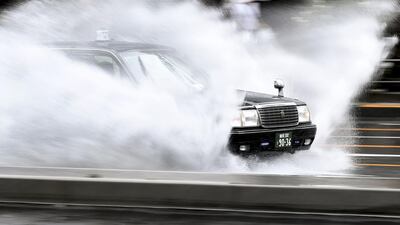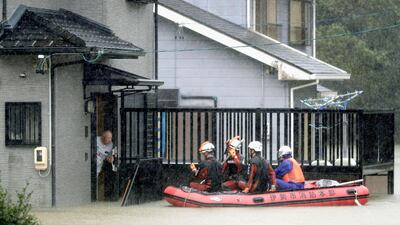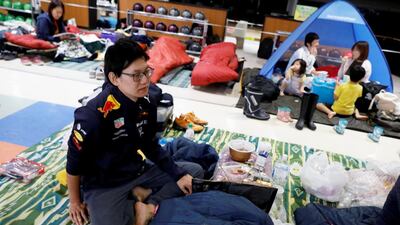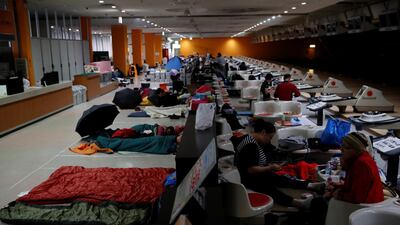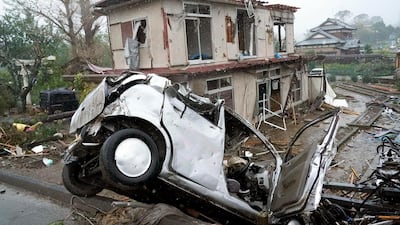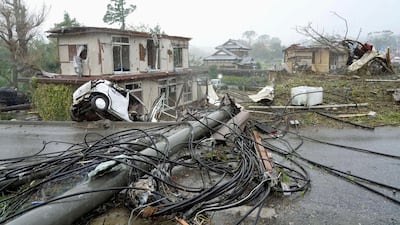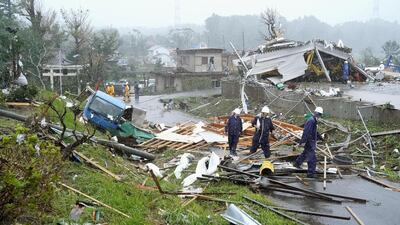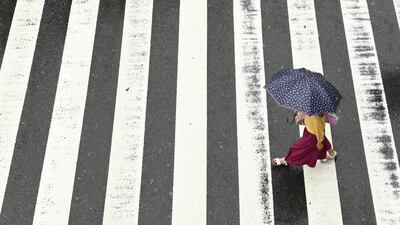One man died and more than a million in Japan were advised to evacuate as a powerful typhoon was set to make landfall late on Saturday, bringing with it the heaviest rain and winds in 60 years.
A man in his forties was killed in an overturned car early on Saturday in Chiba prefecture east of Tokyo, where high winds were reported, according to public broadcaster NHK. Four people were injured, also in Chiba, as winds blew roofs off several houses.
A number of municipal governments issued evacuation advisories to areas particularly at risk of floods and landslides, including some in the most populous greater Tokyo region, NHK said.
Typhoon Hagibis, which means "speed" in the Philippine language Tagalog, is due to make landfall on Japan's main island of Honshu late on Saturday, a month after one of the strongest typhoons to hit the country in recent years destroyed or damaged 30,000 houses and caused extensive power outages.
More than 16,000 households have lost power, including 7,200 in Chiba, the industry ministry said.
The Defense Ministry set up a new Twitter account to disseminate information on disaster relief efforts.
Stores, factories and subway systems have been shut down as a precaution, while Japanese Formula One Grand Prix organisers cancelled all practice and qualifying sessions scheduled for Saturday.
Thousands of homes in Tokyo and the surrounding areas lost electricity, though in some cases only briefly, with crews working to reconnect people as quickly as possible.
Automakers, including Toyota and Honda, have shut down their factories, and many supermarkets and convenience stores in the capital have closed, a day after residents shopping for typhoon supplies emptied the shelves.
Two matches of the Rugby World Cup due to be played on Saturday were also cancelled.
More than 1,600 flights have been cancelled. Narita international airport near Tokyo stopped accepting flights from 11 am (2 am GMT) as trains connecting to cities were suspended.
Storm surges continue to hit the Pacific coast of Honshu on Saturday and Sunday, as are torrential rain, causing floods and landslides.
Typhoon Ida, known as the "Kanogawa Typhoon" in Japanese, killed more than 1,000 people in 1958.
Japan is hit by around 20 typhoons a year, though the capital is not usually badly affected.
Hagibis is bearing down on the region just weeks after Typhoon Faxai hit the area with similar strength, killing two and causing major damage in Chiba.
